
Faculty
 |
Jimena Andersen, PhDAssistant Professor My goal is to understand, at a cellular and tissue levels, the fundamental processes that shape the development and function of the spinal cord and motor system and identify vulnerable links that predispose it to disease. My particular focus will be on studying the contribution of extrinsic factors or cell-to-cell interactions in this context. |
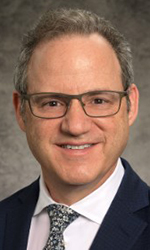 |
Gary Bassell, PhDCharles Howard Candler Professor and Chair The research interests of our laboratory are to understand the diverse and critical roles played by mRNA binding proteins and associated factors in the posttranscriptional regulation of gene expression in the nervous system, and investigate how these processes go awry in neurodevelopmental and neurodegenerative disorders. We investigate the normal mechanism, function and regulation of mRNA binding proteins in mRNA transport and local protein synthesis needed for neuronal development and synaptic plasticity. We investigate pathomechanisms for Fragile X syndrome (FXS), myotonic dystrophy (DM), amyotrophic lateral sclerosis and frontotemporal dementia (ALS/FTD). We are using mouse models of neurological diseases to assess the function of mRNA regulation and local protein synthesis in axon guidance, synapse development and neuronal signaling. Efforts are also underway to evaluate different therapeutic modalities in mouse and human stem cell derived models of neurological diseases. Our research utilizes an integrated multi-disciplinary approach that involves cellular, molecular, biochemical, physiological, and behavioral methods and paradigms. These studies are expected to reveal new mechanisms important for neuronal development and function, and targeted approaches for therapeutic intervention that treat underlying molecular defects in SMA, ALS/FTD, myotonic dystrophy, Fragile X syndrome and autism spectrum disorders. |
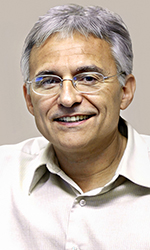 |
Victor Corces, PhDProfessor My current research includes molecular basis of neurodegeneration using genomics approaches. |
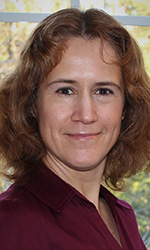 |
Adriana Galvan, PhDAssociate Professor My research aims to gain a deeper understanding of the physiology and pathology of the basal ganglia in movement disorders, with the ultimate goal of improving therapies for these conditions. To this end, I use immunocytochemical, ultrastructural techniques, and in vivo methods, including electrophysiological recordings, pharmacology, microdialysis, as well as optogenetic and chemogenetic techniques in monkeys. |
 |
Marla Gearing, PhDAssociate Professor With Jonathan Glass, I am co-Leader of the ADRC Neuropathology Core, and I support investigators at Emory (and elsewhere) by providing expertise as well as tissues from the ADRC brain bank for research on a variety of neurodegenerative diseases. |
 |
Chad Hales, MD, PhDAssociate Professor My current research includes mechanisms of neurodegenerative, with focus on tauopathies (FTD and AD). |
 |
Ellen Hess, PhDProfessor My research focuses on pathophysiology of dystonia and Parkinson's disease using a multidisciplinary approach in animal models; neuronal mechanisms underlying sex differences in movement disorders. |
 |
Lenora Higginbotham, MDAssistant Professor My current research focuses on protein biomarkers of Lewy body dementia. |
 |
Jie Jiang, PhDAssistant Professor Our laboratory studies disease mechanisms in neurodegenerative disorders, with special emphasis on Frontotemporal Dementia and Amyotrophic Lateral Sclerosis. We are also interested in developing therapeutic approaches targeting these devastating diseases. Our research utilizes innovative techniques and interdisciplinary approaches in cellular, Drosophila and mouse models, as well as in patient post-mortem tissues. |
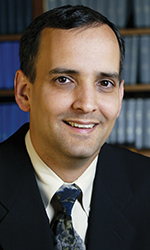 |
Hyder A. Jinnah, MD, PhDProfessor Our lab does both basic and clinical research relating to a large family of related disorders known as dystonia. |
 |
Erik Johnson, MD, PhDAssistant Professor My primary research interest is in developing biofluid biomarkers for Alzheimer's disease, with a focus on protein biomarkers. |
 |
David Katz, PhDAssociate Professor My lab focuses on the role of the histone demethylase LSD1 in tau-mediated neurodegneration. |
 |
Tom Kukar, PhDAssociate Professor My research focuses on the function and therapeutic potential of progranulin in neurodegeneration (FTD/ALS and AD); understanding how dysfunction of the lysosome and lipid metabolism causes neurodegneration; neuroinflammation and glial biology in brain health. |
 |
Yona Levites, PhDAssociate Professor The goal of her research is to get preclinical immunotherapy research to the stage where these agents can be evaluated in clinic. Additionally, Dr. Levites is investigating, as a part of a collaborative RF1 project with Drs. Golde, Seyfried and Dr. Prokop (UF), a role of Amyloid Associated Proteins in the pathology of Alzheimer’s disease. She also plays a key role in developing AAV toolkit, looking for optimal ways to deliver AAV to the CNS and achieve highest levels of gene expression in areas of interest. |
 |
Lian Li, PhDProfessor My current research includes molecular and translational neurodegeneration research to discover and study novel pathogenic pathways and therapeutic targets for combating neurological disorders, such as AD and PD. |
 |
Bo Liang, PhDAssociate Professor I am broadly interested in the structural basis and physiological function of biologically essential complexes in space and time. The principal goal of our research is to elucidate high-resolution structural details and understand the molecular mechanisms of large assemblies, including ribonucleoprotein complexes and membrane proteins, using integrated approaches of cryo-electron microscopy (cryo-EM) and x-ray crystallography. I am particularly interested in interdisciplinary research in biochemistry, structural biology, molecular cell biology, microbiology and neurobiology. |
 |
David Lynn, PhDProfessor My current research interests include systems chemistry and chemical evolution. |
 |
Zixu Mao, MD, PhDProfessor My current research focuses on mechanisms of neural stress response and pathogenic processes of Alzheimer's and Parkinson's diseases. |
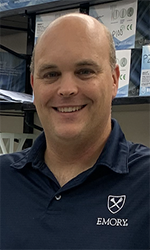 |
Blaine Roberts, PhDAssociate Professor My research has focused on identifying the root cause of neurodegenerative diseases including Alzheimer’s disease, Parkinson’s disease and amyotrophic lateral sclerosis. I am interested in understanding the biological impact of protein modifications, particularly how metal cofactors and post-translational modifications of proteins impact the diagnosis and treatment of neurodegenerative diseases. I am particularly excited about the potential of characterizing protein PTMs, protein dynamics with hydrogen deuterium exchange mass spectrometry and metal status to unravel the mysteries about the role of metalloproteins in neurodegenerative disease. |
 |
Matthew Rowan, PhDAssistant Professor The Rowan Lab is interested in cellular and molecular mechanisms in neurons which allow these incredibly diverse cells to perform the wide variety of signaling functions necessary for learning and cognition. We employ a multifaceted approach, including two photon imaging, molecular, electrophysiological, optogenetic, surgical and modeling techniques. We are particularly interested in understanding why specific neuron types are selectively vulnerable in early-stage Alzheimer's disease. |
 |
Nick Seyfried, PhDProfessor My current research focuses on proteomics for target and biomarker identification in neurodegenerative diseases. |
 |
Stephen Traynelis, PhDProfessor My current research interests include synaptic transmission, drug discovery neurological disease and translation. |
 |
Lary Walker, PhDProfessor Emeritus My research focuses on protein misfolding and neurodegenerative diseases, animal models, as well as vascular disease and aging. |
 |
David Weinshenker, PhDProfessor We study the contribution of locus coeruleus-norepinephrine dysfunction and degeneration to Alzheimer's disease and Parkinson's disease using rodent models. |
 |
Zhexing Wen, PhDAssociate Professor The research of Dr. Zhexing Wen’s laboratory centers on understanding the molecular mechanisms underlying neuropsychiatric and neurodegenerative diseases. |
 |
Aliza Wingo, MDAssociate Professor My lab studies the genetic and molecular basis of the psychiatric disorders (depression, PTSD, anxiety) and AD using multi-omics data (genome-wide genotyping, methylation, microRNA, transcriptomes, proteomes). |
 |
Thomas Wingo, PhDAssociate Professor The main areas of our work are 1) understand genetic causes of Alzheimer's disease, 2) using functional genomics to resolve genetic findings from GWAS as they relate to brain health, 3) harnessing the shared genetic architecture between mid-life psychiatric and neurodegenerative disease to identify genes that contribute to multiple brain disorders, 4) perform functional validation of putatively causal genes identified using GWAS and omics integration. |
 |
James Zheng, PhDProfessor We use both cultured primary rodent neurons and fruit flies to investigate the molecular and cellular mechanisms underlying synaptic disruption and brain dysfunction in neurodegenerative conditions. In cultured neurons, we specifically investigate defects in axonal transport and postsynaptic structure and function. We have also developed a Drosophila model to investigate sex differences and aging effects in late-life emergence of neurodegeneration after mild head trauma. |